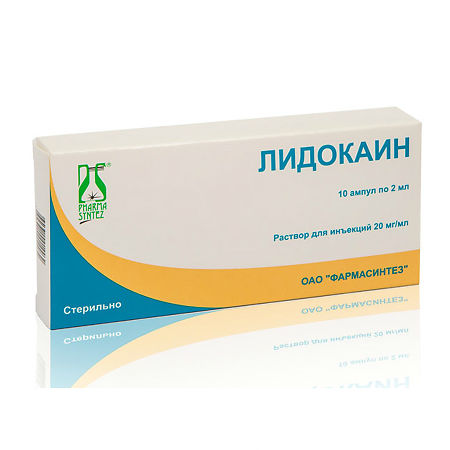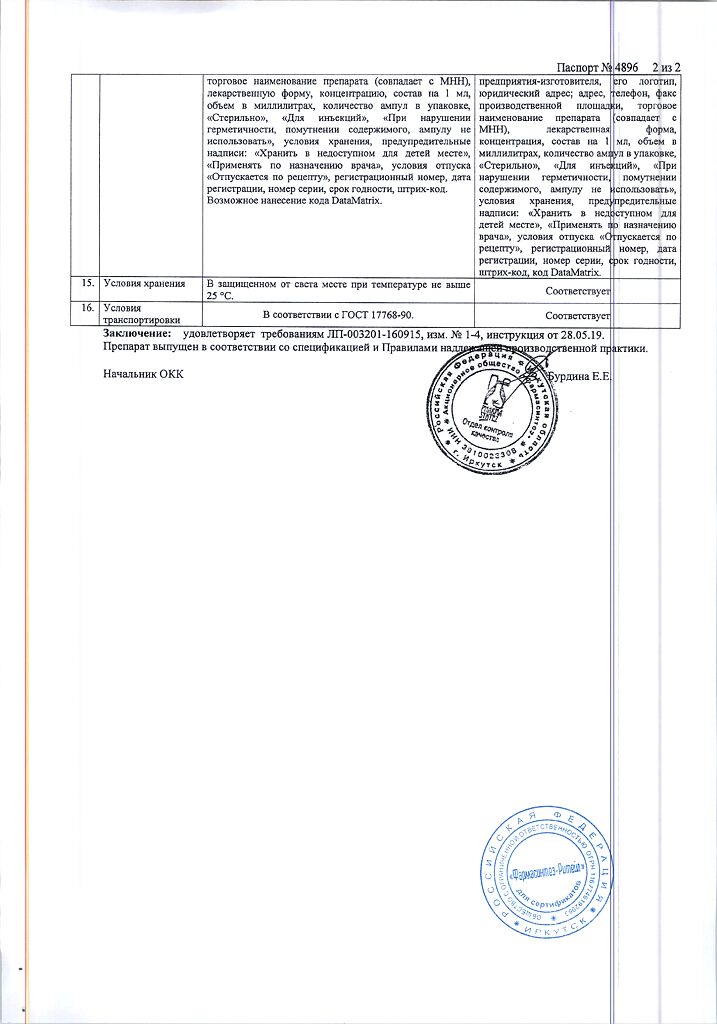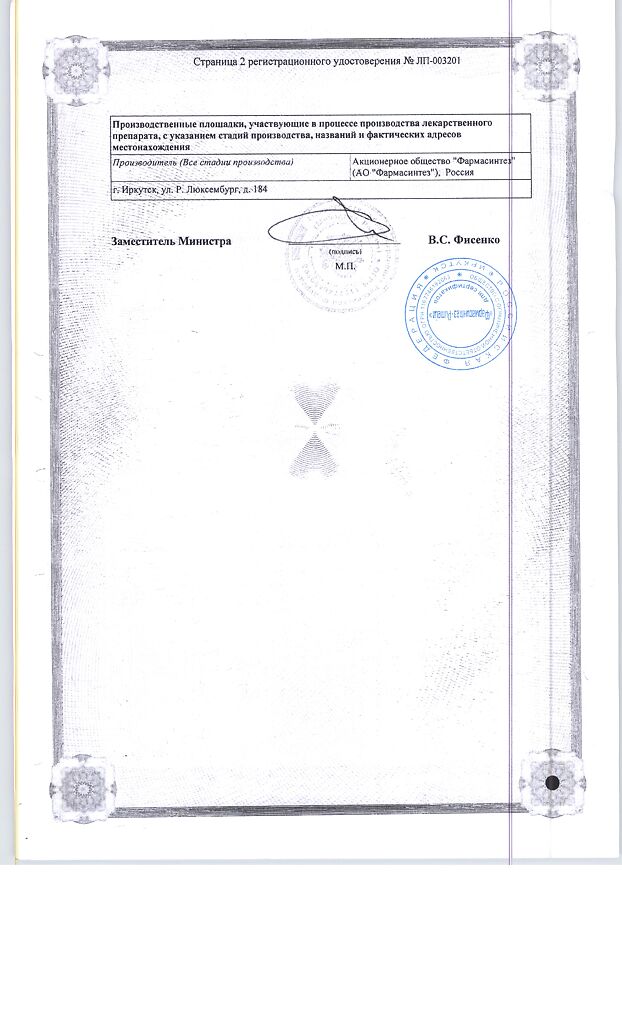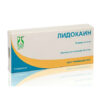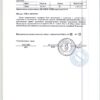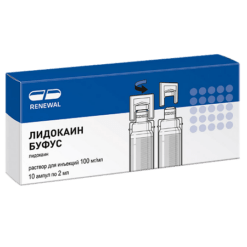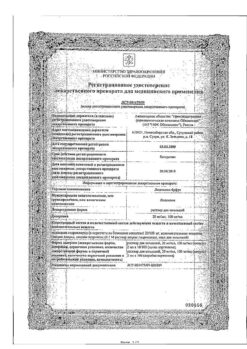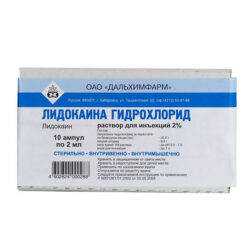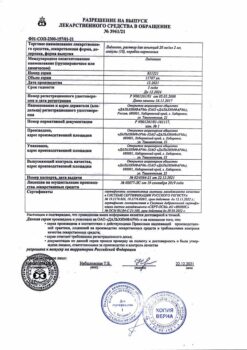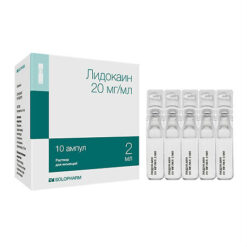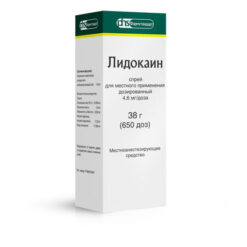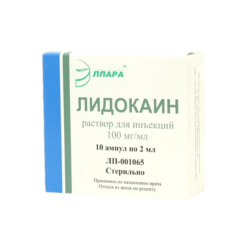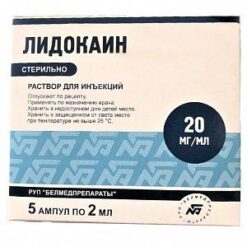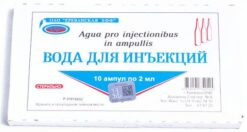No products in the cart.
Lidocaine, 20 mg/ml 2 ml 10 pcs
€1.00
Out of stock
(E-mail when Stock is available)
EAN: 4605310014462
SKU: 314939
Categories: Anesthesia and resuscitation, Local anesthetics, Medicine
Description
Lidocaine is a short-acting local anesthetic of the amide type. Its mechanism of action is based on reducing the permeability of the neuronal membrane to sodium ions. As a result, the rate of depolarization decreases and the excitation threshold increases, leading to reversible local numbness. Lidocaine is used to achieve conductive anesthesia in various parts of the body and to control arrhythmias. It has a rapid onset of action (about one minute after intravenous injection and fifteen minutes after intramuscular injection) and spreads quickly to surrounding tissues. Its action lasts 10-20 minutes and about 60-90 minutes after intravenous and intramuscular injection, respectively.
Indications
Indications
Local and regional anesthesia, conduction anesthesia for major and minor interventions.
Pharmacological effect
Pharmacological effect
Lidocaine is a short-acting amide-type local anesthetic. Its mechanism of action is based on a decrease in the permeability of the neuron membrane to sodium ions. As a result, the rate of depolarization decreases and the excitation threshold increases, leading to reversible local numbness. Lidocaine is used to achieve conduction anesthesia in various parts of the body and control arrhythmia. It has a rapid onset of action (about one minute after intravenous administration and fifteen minutes after intramuscular administration), and quickly spreads into surrounding tissues. The action lasts 10-20 minutes and about 60-90 minutes after intravenous and intramuscular administration, respectively.
Special instructions
Special instructions
The administration of lidocaine should be carried out by specialists with experience and equipment for resuscitation. When local anesthetics are administered, resuscitation equipment must be available. It should be used with caution in patients with myasthenia gravis, epilepsy, chronic heart failure, bradycardia and respiratory depression, as well as in combination with drugs that interact with lidocaine and lead to increased bioavailability, potentiation of effects (for example, phenytoin) or prolongation of elimination (for example, in hepatic or end-stage renal failure, in which metabolites may accumulate lidocaine).
Active ingredient
Active ingredient
Lidocaine
Composition
Composition
Active substances per 1 ml:
Pregnancy
Pregnancy
Fertility
Contraindications
Contraindications
Hypersensitivity to amide-type anesthetics. Atrioventricular (AV) block 3rd degree. Hypovolemia.
Chronic heart failure FC II, arterial hypotension, hypovolemia, atrioventricular block I degree, sinus bradycardia, severe hepatic and/or renal failure, myasthenia gravis, epileptiform convulsions (including in history), reduced hepatic blood flow, debilitated or elderly patients (over 65 years of age), children under 18 years of age (due to slow metabolism, accumulation of the drug is possible).
Side Effects
Side Effects
Adverse reactions are described according to MedDRA system organ classes.
Interaction
Interaction
The toxicity of lidocaine increases when it is used simultaneously with cimetidine and propranolol due to an increase in the concentration of lidocaine; this requires a reduction in the dose of lidocaine. Both drugs reduce hepatic blood flow. In addition, cimetidine inhibits microsomal activity. Ranitidine slightly reduces the clearance of lidocaine, which leads to an increase in its concentration in the blood.
Overdose
Overdose
Symptoms
Storage conditions
Storage conditions
At a temperature not higher than 25°C. Keep out of the reach of children.
Manufacturer
Manufacturer
Pharmasintez JSC, Russia
Additional information
| Conditions of storage | At a temperature not exceeding 25°C. Keep out of reach of children. |
|---|---|
| Manufacturer | Pharmasintez JSC, Russia |
| Medication form | solution for injection |
| Brand | Pharmasintez JSC |
Other forms…
Related products
Buy Lidocaine, 20 mg/ml 2 ml 10 pcs with delivery to USA, UK, Europe and over 120 other countries.

